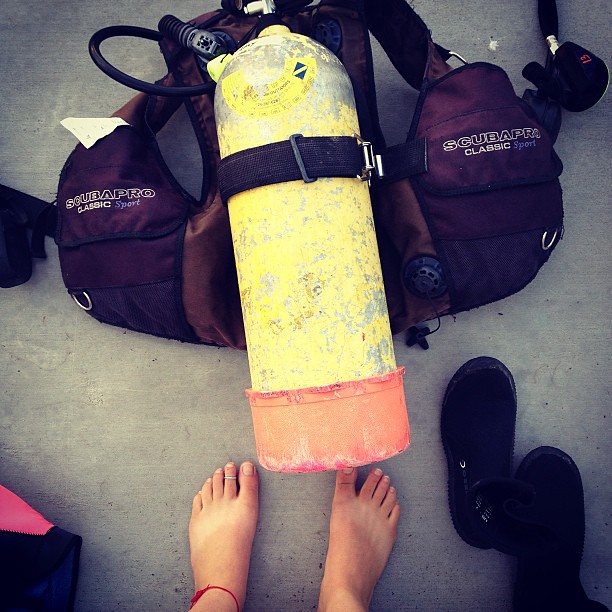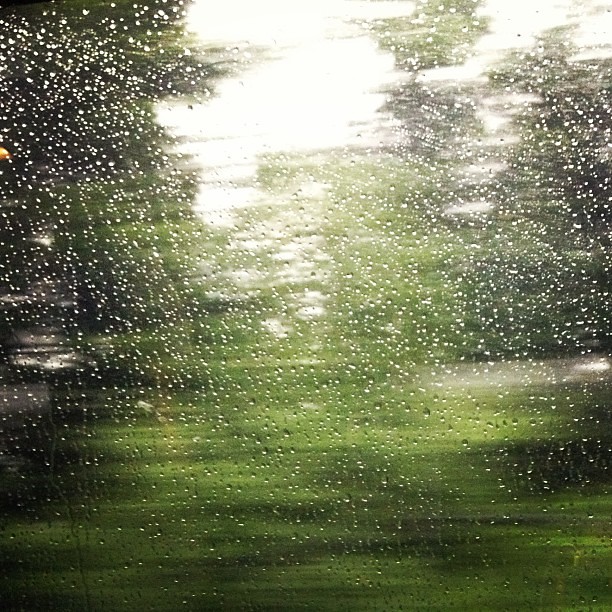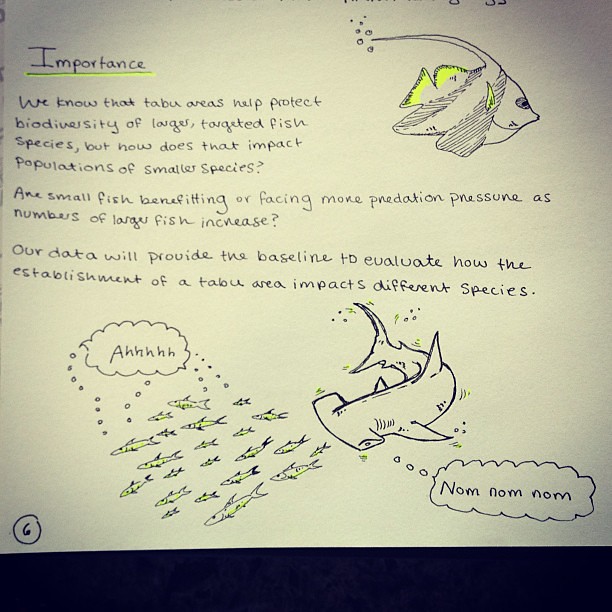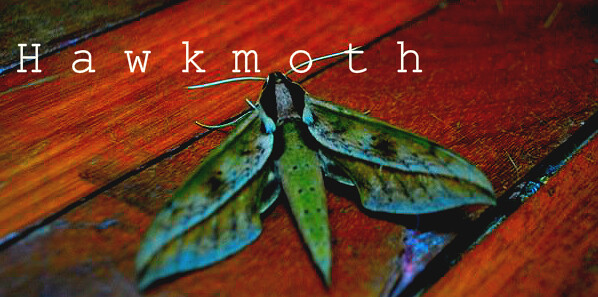It has been a frenzied two weeks of laundry and primary lit. Late May heralded the end of my time in Washington, and tomorrow it's wheels up again. This time I'm headed for Fiji with the Fishlab.

We will spend three weeks surveying reef fish biodiversity on the site of a proposed marine protected area (MPA) to track long-term, ecosystem-wide impacts of a protected zone.
Goals:
1. Characterize biodiversity now, providing a baseline to track future changes in diversity.
2. Describe any new reef species. There are over 1,200 known in Fiji to date.
3. Provide relevant information on existing biodiversity to conservation managers.

In 2010, The Parties to The Convention on Biological Diversity (CBD) met in Nagoya, Aichi prefecture, Japan. There, a strategic plan of global biodiversity targets was drafted for the year 2020. These goals are termed the "Aichi Biodiversity Targets", and are shared by 197 nations, including The US, The Russian Federation, China, The European Union, Brazil, India, The Republic of Korea, Japan, Kenya, Nepal, Afghanistan, Canada, Saudi Arabia, Iraq, and Mexico.
The 11th target of the strategic plan addresses marine conservation: "By 2020...10 per cent of coastal and marine areas, especially areas of particular importance for biodiversity and ecosystem services, are conserved..."
The Parties to the CBD intend to protect marine biodiversity by creating a system of MPAs that conserve 10% of marine areas globally. Fiji is a party to the CBD, and has already met the 2020 target. Currently, 12% of all inshore marine habitats are protected by local-scale, community based efforts. The Fijian government has set a higher national goal to protect 30% of the archipelago's reefs and other marine ecosystems by 2020.

How has Fiji met global conservation objectives? The answer lies in the marriage of traditional and modern conservation approaches.
Long before colonization, Fijian communities had their own means of marine resource management. Each community group (mataqali) had an explicitly defined fishing area as outlined by a Chief (Hornell 1940). Reefs could be closed seasonally, or in observance of a significant event. These temporary closures, known as "tabu" were meant to rebuild stocks for times of future harvest.
In the past decade, the Fijian government has strongly encouraged expansion of traditional local-scale approaches to marine conservation practice. The majority of management planning is through the Fiji Locally-Mananged Marine Area (LMMA) Network, with over 200 communities designating no-take zones, or gear restrictions on their local reefs. Now, traditional methods are applied in response to the modern challenges of high demand and overfishing.
As Mills (2012) notes, local-scale ad hoc conservation practices can theoretically combine into a network of integrated protected zones in Fiji. However, without systematic identification of priority areas, limited resources may only serve regional goals, contributing marginally to broader objectives. In the video below, Dr. Josh Drew outlines the importance of connections between MPAs:
Connections between parks provide insurance. In case of disaster, a degraded area can be healed and repopulated with recruits from a neighboring zone. In addition, many more ecosystems can be represented in a network of reserves than in any single protected area.
During our time in Fiji, we will collect fishes from different areas within a proposed MPA. Back in the lab, we will extract and analyze DNA from these fishes. By comparing genetic data, we will determine if fish collected from different geographic areas are interbreeding. This will give us an initial snapshot of distribution and diversity in the MPA, which can be monitored and reevaluated over time.
Much more to come on this and future projects. Hello graduate school, I'm stoked to meet you.



Stoked to follow your journey Amy!
ReplyDeleteAdore, adore, enjoy your blog post a great dvisit day-to-day but in addition, ought to acknowledge, adore, adore, really like your brand-new blog site!! Amazing! OH! Incredible! GORGEOUS!!
ReplyDeleteGold For Runescape
WOW Gold Kaufen
blade and soul gold